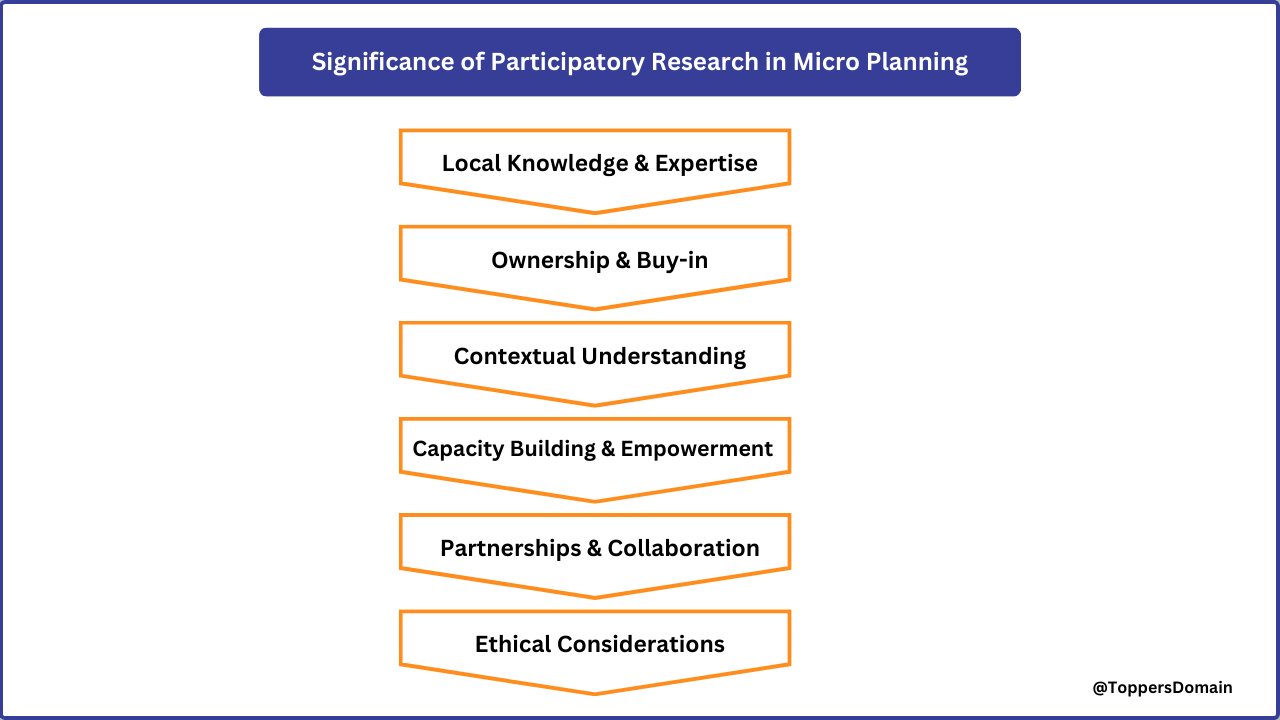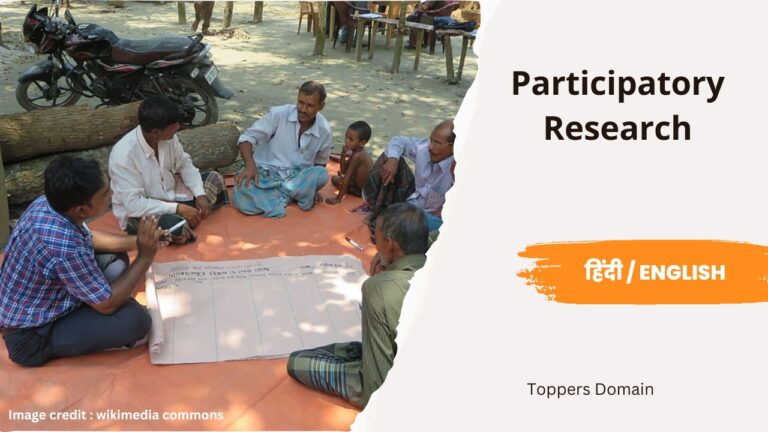Participatory Research in Micro Planning
Regional Planning & Development
Index
Introduction
Participatory research refers to a collaborative approach to conducting research that actively involves the individuals or communities being studied as partners in the research process. It is a method that recognizes the expertise and knowledge of the participants and seeks to empower them by involving them in all stages of the research, from problem identification to data collection, analysis and decision-making. The primary goal of participatory research is to generate knowledge that is useful and relevant to the participants themselves and to promote social change and action based on that knowledge.
Participatory Research in Micro Planning
Participatory research is especially important in micro planning, which refers to the process of developing detailed and context-specific plans for small-scale interventions or projects at the local level.
Here are some reasons why participatory research is crucial in micro planning:
Local Knowledge and Expertise:
Participatory research recognizes that individuals and communities possess valuable knowledge about their own lives, experiences and challenges. By involving them in the research process, micro planners can tap into this local knowledge and expertise, ensuring that the plans developed are grounded in the realities and needs of the community. This helps to avoid top-down approaches that may overlook important local nuances and result in ineffective or unsustainable interventions.
Ownership and Buy-in:
When people are actively involved in the research process, they develop a sense of ownership over the findings and outcomes. This sense of ownership translates into increased buy-in and commitment to the micro planning process. Participants are more likely to support and engage with the plans because they have had a say in shaping them. This leads to greater sustainability and success of the interventions.
Contextual Understanding:
Participatory research allows micro planners to gain a deep understanding of the local context, including cultural, social, economic, and political factors that may influence the success of the interventions. By involving community members in data collection and analysis, planners can access nuanced perspectives and insights that would otherwise be missed. This contextual understanding helps in tailoring plans to the specific needs and aspirations of the community, increasing the chances of positive outcomes.
Building Capacity and Empowering Communities:
Participatory research involves training and capacity-building for community members, enabling them to actively participate in the research process. This builds their skills, confidence and empowerment, which can have long-term positive effects beyond the specific research project. Engaging community members as researchers and decision-makers contributes to their overall development and strengthens their ability to advocate for their rights and interests.
Strengthening Partnerships and Collaboration:
Participatory research promotes collaboration between researchers, micro planners and community members. It fosters a sense of partnership and mutual learning, breaking down traditional power dynamics between researchers and research participants. This collaborative approach can lead to the development of sustainable partnerships and networks that continue beyond the research project, fostering ongoing community engagement and improvement.
Ethical Considerations:
Participatory research emphasizes ethical principles, such as respect for autonomy, beneficence and justice. By involving participants as active partners, their rights and well-being are prioritized throughout the research process. Micro planners can ensure that the interventions are culturally sensitive, inclusive and respectful of local values and traditions.
Conclusion :
In conclusion, participatory research is a valuable approach in micro planning due to its emphasis on local knowledge, ownership, contextual understanding, capacity building, collaboration and ethical considerations. By actively involving community members in the research process, micro planners can develop plans that are responsive to the specific needs and aspirations of the community, leading to more effective and sustainable interventions. Participatory research empowers individuals and communities, promoting social change and creating opportunities for meaningful engagement and development.
Share
Related Topics
Participatory Research and Micro Planning
Other Topics
Unit - II








